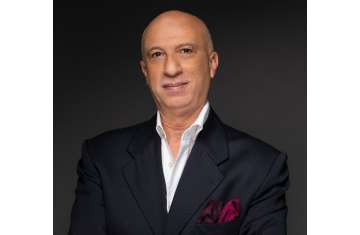On October 30, 1938, CBS radio network broadcasted across the United States a radio news about the fall of a strange spacecraft in New Jersey, as part of an invasion of extraterrestrial creatures from the planet Mars to Earth. The report confirmed that these beings had already begun building giant war machines and were preparing to destroy cities and kill humans.
This news was then followed by emergency news coverage that lasted for over an hour, describing the spacecraft and details about the aggressive extraterrestrial creatures that invaded Earth, and other reports from different locations occupied by these extraterrestrial beings.
Soon, listeners began calling local radio stations to report sightings of real extraterrestrial beings, and people actually began fleeing their homes. This news caused a state of panic and great fear across the country, and chaos spread in all the streets.
In the end, it was discovered that what was broadcasted was part of a radio program called "The Mercury Theatre on the Air," where actor and director Orson Welles broadcasted a summary of the science fiction novel "The War of the Worlds" written by Herbert George Wells, first published in 1898, narrating the terrifying invasion of Earth by extraterrestrial creatures from Mars.
This incident remains a symbol of the immense power of the media's influence on public opinion, as well as collective consciousness. This is the real dilemma we live now; every day we wake up to a dose of fake and misleading news because the truth has become a rare commodity; because we live in a time where talk is prioritized over truth, where facts have become so complex and complicated that they lose their value to false narratives. Both compete for our attention, as superficial understanding always feeds the false; because we live in a time that allows us access to the knowledge of the whole world through our mobile phones, but we lack the ability to examine, verify, and analyze. Awareness is not just the ability to distinguish between the false and the true, but also the ability to understand the context, hidden points, and motives behind the news we read.
Even the news platforms that we once found credible have lost it, racing after what's trending, most viewed, and read. We now read the news in more than one place to ensure its credibility, and yet in the end, we discover that the facts change and differ from one place to another. We lack a source that does not require us to verify and search for the truth; we lack a writer who does not have a private agenda; we lack a journalist who has a real conscience in conveying information; we lack a human who has a degree of awareness that grants them the ability to distinguish between the false and the true, the awareness that makes them differentiate between what to repost on social media and what not to repost, promote, discuss, and question. The awareness that makes them differentiate between what to believe and what not to believe.
We live in a complicated world where noise drowns out the truth, and deception and hidden agendas prevail over the public interest.
Before the shift to the era of massive information, we may have had the same vast amount of information, but we did not possess this amount of falsification tools. Information has become available to every individual, and everyone has the ability to publish. This is what they call the democratization of information, where it is now possible for anyone to have a voice and participate in public dialogue, regardless of whether they are qualified or not, or have enough credibility and conscience or not. However, it eventually becomes part of our knowledge sources, which, despite the difficulty of determining their credibility and examining them, ultimately leave their mark, negatively or positively.
Moreover, the matter does not stop at the boundaries of fake news and misleading information only, but it extends to the impact of this information on public opinion and the formation of collective awareness. Sometimes, fake news can cause hysteria and panic, or lead to the spread of hatred and prejudice, or generate waves of extremism, or sow wrong resentments and biases, or plant the seeds of hostility and division, including influencing political decisions, and sowing doubt and distrust in institutions.
We must be certain that web content is not neutral or objective. Here comes the role of local media in confronting these systematic campaigns against Egypt, and it should not be limited to being a "reaction" to the lies published, but must be an independent "action," preempting events with analysis and clarification, and providing the citizen with accurate information before misleading news reaches them through systematic campaigns following specific agendas.
These promoters and mercenaries use sophisticated methods in forming their stories, much like what director Orson Welles did more than eighty years ago, by blending fictitious names with real events, numbers, and facts, in an attempt to give a semblance of truth to the fake story. As tools to enhance the alleged realism.
Thus, these false stories become an effective tool in influencing public opinion, and changing its directions and feelings based on unfounded grounds.
A final word from British author George Orwell:
"In a time of universal deceit, telling the truth becomes a revolutionary act."

Comments